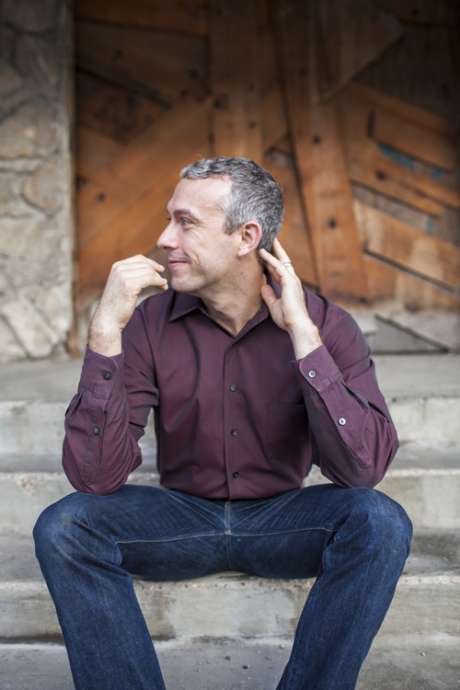 Marcus Maroney composed all five poetry-inspired works to be performed. Photo: Courtesy Photo
Marcus Maroney composed all five poetry-inspired works to be performed. Photo: Courtesy Photo
By Lawrence Elizabeth Knox, October 27, 2017
Though there’s some truth to that characterization, artists are often introspective, constantly challenged by their own criticism and motivation. Yet, as a member of a corps de ballet or a chamber orchestra, for example, an individual is often not meant to stand out but rather blend into the whole. There is a teamwork aspect, even more so as partnerships with outside groups have continued to increase. As in the fashion industry, collaborations have become a mainstay in the art world.
Finding partners, not just venues or vendors, is of prime importance to the mission of Houston’s River Oaks Chamber Orchestra, artistic director and principal oboist Alecia Lawyer explained. The organization strives to work with numerous others across the city, arts affiliated or not, and on Monday, it will join four other groups – Lawndale Art Center, Inprint, Musiqa and the Houston Hispanic Forum – for their ninth annual collaborative Día de los Muertos celebration.
Free to the public, “Musical & Literary Ofrenda” will feature Lawyer with fellow ROCO musicians, violist Lorento Golofeev and cellist Shino Hayashi, accompanied by baritone Timothy Jones. They will perform five new miniature compositions by Marcus Maroney interspersed with readings of four prose and poetry texts by Inprint authors while surrounded by devotional paintings called retablos.
MORE INFORMATION
‘ROCO Connections: Musical & Literary Ofrenda’
When: 5:30 art tour, 6 p.m. concert, 7 p.m. Español y arte, Monday
Where: Lawndale Art Center
Tickets: Free
The performance, in its entirety, honors the Mexican and Latin American tradition that commemorates departed loved ones, and it reflects themes associated with the holiday, such as life, death, celebration and remembrance.
“Houston is such a diverse city that we would be remiss if we weren’t tapping into the traditions and experiences of other cultures,” said Amy Gibbs, managing director of ROCO. “If we only focused on the traditional European salons and private homes, we would be doing a disservice to the community.”
In previous years of the Ofrenda, five composers each contributed one piece, leading to a combination of musical styles and languages. This year, Maroney, who is a member of Musiqa’s artistic board, composed all five works, which are inspired by and named after five poems.
Initially, the process was slow moving, as Maroney said he struggled to find poetry that not only felt unified in theme but also spoke to him musically. One thing he knew is that he did not want his work to have a dark undertone. Rather, he searched for poetry with an aspect of nostalgic remembrance, and he found that, along with a few coincidental references to autumn, in the words of authors Angelina Weld Grimké, Adelaide Crapsey, César Vallejo, Witter Bynner and Carl Sandburg.
“Almost immediately when I read a poem, I have to hear some kind of musical idea in my head, and it doesn’t happen with every poem,” Maroney said. “There are some really great poets who I love their poetry, but they don’t really inspire or make me long to set their words. It’s an interpretation of the poem when you add music to it. It changes it quite a bit.”
Following the concert, the Houston Hispanic Forum will present Español y arte, when guests will have the opportunity to take a basic Spanish lesson while sipping on champagne.
Like so many of ROCO’s concerts, this performance takes place in a nontraditional venue, a characteristic of its presentation that Maroney said he thinks is the only way classical music and even poetry will remain relevant in today’s society. Placing music into everyday habitats, rather than simply relegating it to Jones Hall, allows for chance encounters to occur that may be eye-opening enough for listeners to shift their perspectives.
“It’s something we share no matter the style, no matter the culture. You can communicate in a way that doesn’t take a lot of explanation,” Lawyer said of music. “To me, that’s what music is. It can unify this hugely diverse and, yet, beautiful city.”
Source: A Día de los Muertos collaboration
SaveSave
SaveSave

Leave A Reply